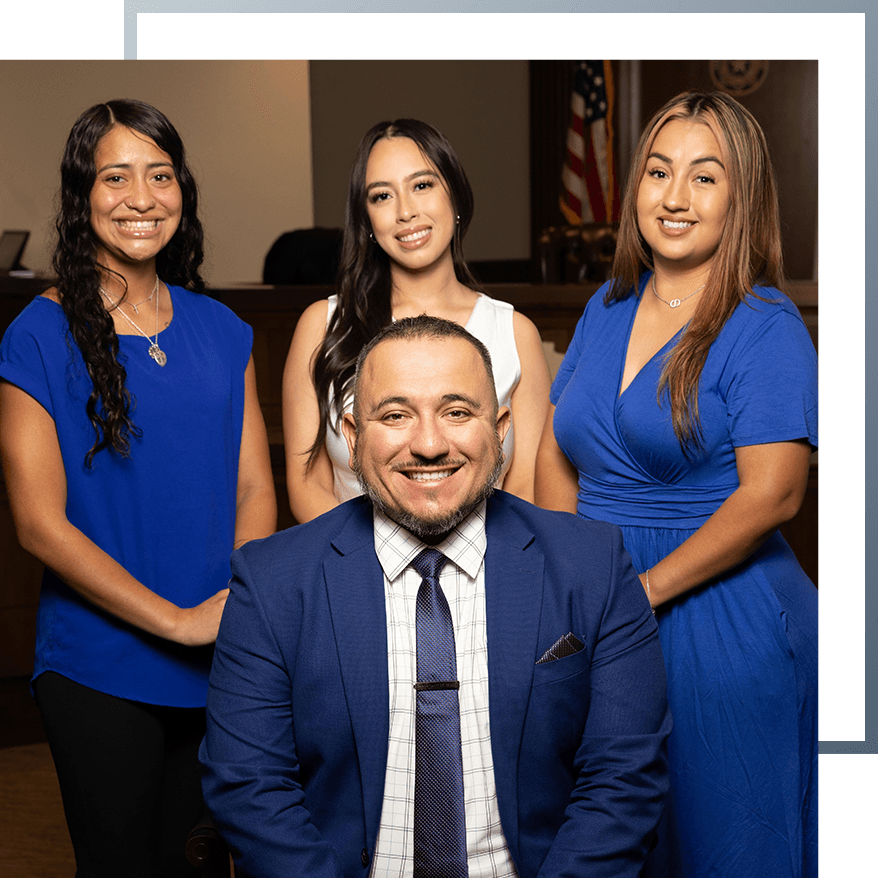
Common Crimes Under Texas Domestic Violence Laws
Family violence can include different criminal actions, such as:
- Assault (simple assault): Intentionally or knowingly causing bodily injury to another or threatening imminent harm. Actions can include hitting, slapping, pushing, restraining someone against their will, any unwanted offensive or provocative contact, or intimidation. This is typically charged as a Class A misdemeanor.
- Aggravated Assault: Involving serious bodily injury or the use of a deadly weapon during an alleged attack on a victim, it is generally charged as a second-degree felony. “Serious” bodily injury is defined as creating a substantial risk of death, permanent disfigurement, or physical impairment or loss.
- Continuous Violence Against a Family: Engaging in two or more incidents of domestic violence against the same person within 12 months; it is generally a third-degree felony.
- Stalking: Following or harassing a victim in a manner that causes them fear is also a third-degree felony.
- Threats: Communicating threats of violence that cause fear of imminent bodily injury to the victim, their children, or others.
- Interference with an Emergency Request for Assistance: Preventing an alleged victim from calling for emergency assistance during situations of violence. This is a Class A misdemeanor.
- Family Code Violation: Breaching protective orders or other protective measures established for an alleged victim’s safety.

The Complications of Family Violence Accusations
Family violence cases can frequently devolve into “she said/he said” situations. Exaggerations, misrepresentations, and outright lies can form the basis of a domestic violence accusation. These typically occur in cases where intimate relationships have broken down, such as in divorce, custody disputes, and other emotionally charged conflicts.
Often, no witnesses to the alleged abuse are available, and physical evidence is limited or nonexistent. In Texas, law enforcement officers responding to a domestic disturbance call are not automatically required to make an arrest. However, they can arrest someone if they have probable cause to believe an offense has been committed.
What Is Probable Cause?
Probable cause is based on a reasonable belief that an offense has occurred. This belief must be more than mere suspicion but does not need to meet the higher standard of proof required for a conviction.
It can be derived at the site of the incident from visible injuries, damaged property, or other physical signs of violence. Other factors can include testimonies from the alleged victim, witnesses, or the suspect, signs of fear, aggression, or alcohol/substance abuse, and onsite indicators of a physical struggle.
How Can Protective Orders Impact You?
Protective orders are legal instruments designed to protect victims of domestic violence under Texas Family Code Chapter 85. These orders can prohibit the alleged abuser from contacting or coming near the victim, as well as deny access to shared residences or children. Other orders or restrictions may be included, such as prohibiting possession of guns and participation in mandatory counseling or substance abuse programs, depending on the circumstances.
Violations of protective orders can result in criminal penalties, further complicating the legal repercussions for alleged abusers. These restraining orders are commonly issued by courts to protect victims and their families and promote their safety during volatile situations and relationships.
Why You Need an Experienced Family Violence Lawyer in Odessa
Accusations of domestic violence can profoundly affect your personal and professional life, not only your reputation but also your relationships with loved ones. These accusations call for the services of competent legal counsel.
Navigating the complexities of the legal system in these cases without a skilled attorney can expose you to an unfair outcome. This can potentially lead to unjust convictions with severe penalties. Qualified legal representation can provide the necessary guidance and support to help you understand your rights and options in these sensitive situations.
In many instances, the credibility of each party’s statements in a domestic violence incident becomes crucial in determining the direction of the case, especially when no witnesses or physical evidence can substantiate claims.
This leaves the prosecution heavily reliant on the victim's testimony, which can be subject to scrutiny and potential inconsistencies. After an in-depth investigation, your defense team may uncover flaws or weaknesses in the prosecution’s assertions or question the alleged victim’s credibility, witnesses, or evidence.
At Sarabia Law Firm, we can thoroughly investigate and analyze your case to devise the most effective defense plan and advocate for you during negotiations with prosecutors or court appearances. Our legal representation can provide a lifeline during these critical times as we protect your rights and fight for fair treatment and the best possible resolution.
Call (432) 224-8036 today to speak with trusted Odessa domestic violence defense lawyers, or contact us online to schedule your free legal consultation. Your side of the story deserves to be heard—don’t wait.


FAQs About Domestic Violence Defense in Texas
Can charges be dropped if the alleged victim changes their mind?
Not necessarily. The decision to file or dismiss charges lies with the prosecutor, not the accuser. Even if the alleged victim wants the case dropped, the state may proceed.
Will I automatically go to jail if I’m convicted?
Not always. First-time offenders may qualify for probation or deferred adjudication. However, even without jail time, a conviction carries serious collateral consequences. That’s why aggressive legal representation is essential.
Is a family violence conviction eligible for expungement or sealing?
Most domestic violence convictions are not eligible for expungement or non-disclosure. This makes it critical to avoid a conviction in the first place by working with an Odessa domestic violence attorney who can negotiate or litigate effectively.
What if I was arrested but never charged?
You may still face protective orders or damage to your reputation. Our Odessa domestic violence lawyers can pursue expungement of your arrest record if charges were never filed.
We offer free initial consultations with an Odessa domestic violence lawyer. Call (432) 224-8036 or email us to make an appointment.

Why Clients Choose Sarabia Law Firm
What Sets Our Team Apart?
-
Local AdvocacyWe are deeply rooted in your community and understand the local legal landscape. This enhances our ability to effectively represent you, as we are familiar with the nuances of the local courts and legal environment.
-
Comprehensive SupportFrom start to finish, we guide you through the entire legal process with unwavering support.
-
Straightforward and Honest RepresentationAt our firm, we prioritize transparency. Our goal is to equip you with the clear and actionable advice you need to navigate your legal challenges effectively.
-
Free ConsultationsTake the first step toward a strong defense with our free consultation, providing personalized legal advice and a strategic plan tailored to your unique situation at no cost.